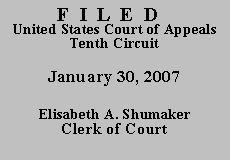

| UNITED STATES OF AMERICA,
Plaintiff-Appellee, v. SALOMON PEREIDO-CANAS, Defendant-Appellant. |
|
The government has filed a motion to enforce the plea agreement. Mr. Pereido-Canas' attorney filed a response stating that he "ha[d] carefully reviewed this matter and [could] find no basis for an appeal of the sentence imposed" or to oppose the government's motion to enforce the plea agreement. Response to United States' Motion to Enforce Plea Agreement at 3, 4. Counsel noted that Mr. Pereido-Canas received the sentence he requested and he waived his right to appeal that sentence. See id. at 3. This court gave Mr. Pereido-Canas an opportunity to file a pro se response to the motion to enforce. To date, he has not done so.
Nevertheless, we have conducted a review of the plea agreement, plea hearing transcript, sentencing hearing transcript, and motion to enforce. We conclude that the following three factors have been satisfied: (1) "the disputed appeals falls within the scope of the waiver of appellate rights"; (2) Mr. Pereido-Canas "knowingly and voluntarily waived his appellate rights"; and (3) "enforcing the waiver would [not] result in a miscarriage of justice." United States v. Hahn, 359 F.3d 1315, 1325 (10th Cir. 2004) (per curiam) (en banc). Accordingly, we conclude that Mr. Pereido-Canas's waiver of his right to appeal is enforceable.(2)
We therefore GRANT the government's motion to enforce the appeal waiver and DISMISS the appeal. The mandate shall issue forthwith.
ENTERED FOR THE COURT
PER CURIAM
*. This panel has determined unanimously that oral argument would not materially assist the determination of this appeal. See Fed. R. App. P. 34(a)(2); 10th Cir. R. 34.1(G). The case is therefore ordered submitted without oral argument. This order and judgment is not binding precedent, except under the doctrines of law of the case, res judicata, and collateral estoppel. It may be cited, however, for its persuasive value consistent with Fed. R. App. P. 32.1 and 10th Cir. R. 32.1.
1. The applicable advisory guidelines sentencing range was fifty-seven to seventy-one months. Sentencing Tr. at 9.
2. Although Mr. Pereido-Canas' counsel states that there is no basis for an appeal, counsel does indicate that Mr. Pereido-Canas would argue that his fifty-seven month sentence was unfair and too long and that the enhancement based on a prior felony sale-of-marijuana conviction amounts to double punishment. Mr. Pereido-Canas, however, waived his right to make these arguments. In his plea agreement, he agreed not to "seek a downward adjustment . . . from the applicable sentencing guidelines offense level or criminal history category as determined by the Court." Plea Agreement at 4. This waiver included any claim that the criminal history category overstated the seriousness of his prior criminal history. Id.